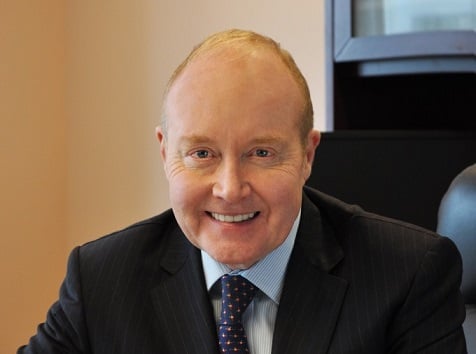Ian C.W. Russell shares insights on populism from the recently held Asian Financial Forum

Leading the Canadian delegation, IIAC President and CEO Ian C.W. Russell recently attended the Asian Financial Forum in Hong Kong, where panelists addressed multiple issues affecting the global financial markets. However, the dominant concern during the proceedings was the rise of populism in developed countries such as the US and Britain.
As Russell shared in a newly published open letter, the current populist climate arises from multiple factors, including “[d]eclining living standards, rising income disparities, persistently high unemployment, increased immigration flows and the growing disconnect between the agenda of the political elites and the concerns of the governed.” The ensuing fear and calls for new policy direction have resulted in the election of Donald Trump in the US, the vote for Brexit in the UK, and the rejection of Italy’s constitution in its national referendum, as well as the prospect of nationalist governments in the upcoming French and German elections.
A more nuanced take came from Mohamed El-Erian, chief economic advisor at Allianz and former CEO and co-CIO of PIMCO. “He explained this populism … as the outcome of the ‘new normal,’ characterized by expansionary monetary policy, low interest rates, weak investment, high unemployment and protracted slow economic growth,” Russell said, explaining El-Erian’s view that political gridlock in developed regions has prevented significant fiscal stimulus, forcing the use of quantitative easing by central banks.
El-Erian believes that with economic and political pressures rising, something has to give. He said that the “new normal” will eventually collapse into one of two possibilities.
“[According to El-Erian], the first direction will result from consensus-building around constructive, pro-growth policies,” Russell said. “The serious economic and social consequences of continued drift in the ‘new normal’ would drive this consensus… [and] would provide the best prospect of breaking out of the deepening economic lethargy.”
“In the alternative scenario, governments would fail to achieve any political consensus for pro-growth policies,” Russell continued. “As the economic and political pressures built, easy money risks asset bubbles and financial market instability and inflation. Public finances deteriorate… [and] the economy spirals into ever-weakening growth.”
Related stories:
Can retirement portfolios be safeguarded in the current markets?
Advisor: my clients aren’t concerned by the Trump factor
As Russell shared in a newly published open letter, the current populist climate arises from multiple factors, including “[d]eclining living standards, rising income disparities, persistently high unemployment, increased immigration flows and the growing disconnect between the agenda of the political elites and the concerns of the governed.” The ensuing fear and calls for new policy direction have resulted in the election of Donald Trump in the US, the vote for Brexit in the UK, and the rejection of Italy’s constitution in its national referendum, as well as the prospect of nationalist governments in the upcoming French and German elections.
A more nuanced take came from Mohamed El-Erian, chief economic advisor at Allianz and former CEO and co-CIO of PIMCO. “He explained this populism … as the outcome of the ‘new normal,’ characterized by expansionary monetary policy, low interest rates, weak investment, high unemployment and protracted slow economic growth,” Russell said, explaining El-Erian’s view that political gridlock in developed regions has prevented significant fiscal stimulus, forcing the use of quantitative easing by central banks.
El-Erian believes that with economic and political pressures rising, something has to give. He said that the “new normal” will eventually collapse into one of two possibilities.
“[According to El-Erian], the first direction will result from consensus-building around constructive, pro-growth policies,” Russell said. “The serious economic and social consequences of continued drift in the ‘new normal’ would drive this consensus… [and] would provide the best prospect of breaking out of the deepening economic lethargy.”
“In the alternative scenario, governments would fail to achieve any political consensus for pro-growth policies,” Russell continued. “As the economic and political pressures built, easy money risks asset bubbles and financial market instability and inflation. Public finances deteriorate… [and] the economy spirals into ever-weakening growth.”
Related stories:
Can retirement portfolios be safeguarded in the current markets?
Advisor: my clients aren’t concerned by the Trump factor



